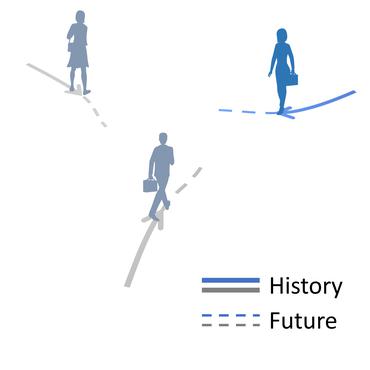Collaborative Uncertainty in Multi-Agent Trajectory Forecasting
Uncertainty modeling is critical in trajectory forecasting systems for both interpretation and safety reasons. To better predict the future trajectories of multiple agents, recent works have introduced interaction modules to capture interactions among agents. This approach leads to correlations among the predicted trajectories. However, the uncertainty brought by such correlations is neglected. To fill this gap, we propose a novel concept, collaborative uncertainty(CU), which models the uncertainty resulting from the interaction module. We build a general CU-based framework to make a prediction model to learn the future trajectory and the corresponding uncertainty. The CU-based framework is integrated as a plugin module to current state-of-the-art (SOTA) systems and deployed in two special cases based on multivariate Gaussian and Laplace distributions. In each case, we conduct extensive experiments on two synthetic datasets and two public, large-scale benchmarks of trajectory forecasting. The results are promising: 1) The results of synthetic datasets show that CU-based framework allows the model to appropriately approximate the ground-truth distribution. 2) The results of trajectory forecasting benchmarks demonstrate that the CU-based framework steadily helps SOTA systems improve their performances. Especially, the proposed CU-based framework helps VectorNet improve by 57cm regarding Final Displacement Error on nuScenes dataset. 3) The visualization results of CU illustrate that the value of CU is highly related to the amount of the interactive information among agents.
PDF Abstract NeurIPS 2021 PDF NeurIPS 2021 Abstract

 nuScenes
nuScenes
 Argoverse
Argoverse